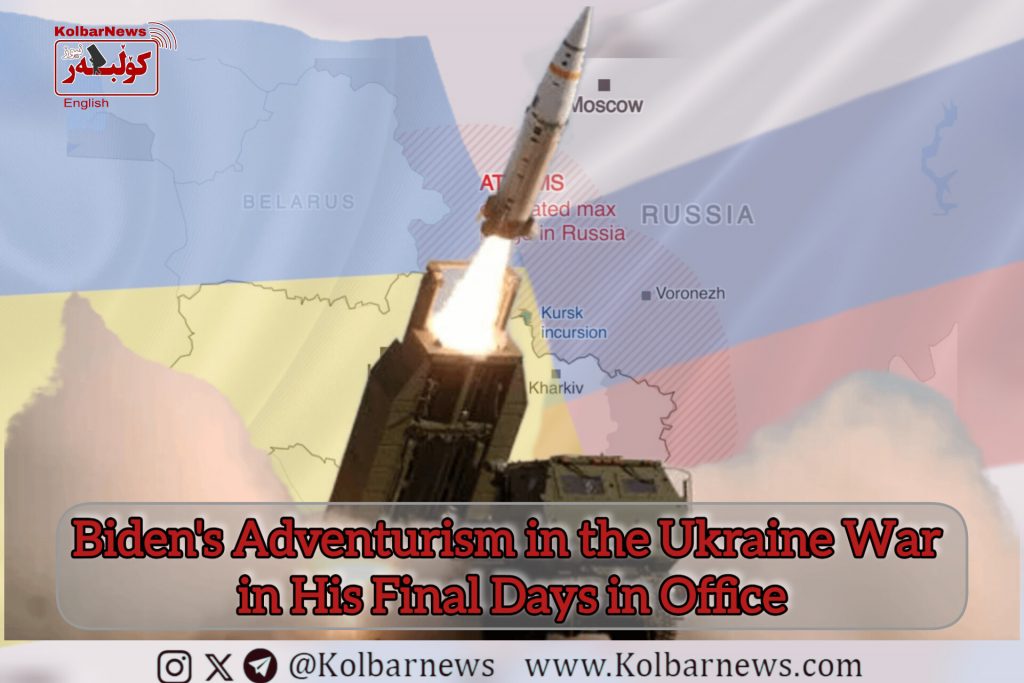
On Tuesday, November 19, 2024, the Ukrainian military launched six U.S.-made long-range missiles into Russian territory. On November 20, it was reported that Ukraine also targeted several locations in Russia using British-made long-range “Storm Shadow” missiles. Russia’s response to these recent military actions was severe: President Vladimir Putin signed an updated nuclear doctrine the same day. This doctrine states that Russia may consider using nuclear weapons if it faces a conventional attack supported by a nuclear-armed nation.
According to The New York Times, citing U.S. officials, President Joe Biden authorized strikes deep into Russian territory using American-made missiles. These weapons, part of the U.S. tactical missile systems, are reportedly precise and difficult to intercept. While the White House neither confirmed nor denied the report, Ukrainian President Volodymyr Zelensky remarked that “the missiles spoke for themselves.” Russian military officials claimed to have intercepted five missiles, with one hitting its target, causing a fire that was quickly extinguished.
France’s Le Figaro reported that French and British authorities supported Biden’s decision and permitted Ukraine to use French-made “Scalp” missiles and British “Storm Shadow” missiles against Russia. Meanwhile, EU foreign policy chief Josep Borrell defended Biden’s actions, stating, “Putin refuses to negotiate,” and reaffirmed his support for attacks deep into Russian territory. In response, Russian Foreign Ministry spokeswoman Maria Zakharova declared that Ukraine’s use of long-range missiles against Russia equates to direct involvement by the U.S. and its allies in the conflict, fundamentally altering its nature. She warned that Russia’s response would be “balanced and tangible.”
TASS reported that Vladimir Dzhabarov, Deputy Chairman of Russia’s Federation Council Committee on International Affairs, stated on Sunday that Washington’s decision to allow Ukraine to strike deep into Russia using American long-range missiles could lead to World War III and would prompt a swift response from Russia.
Biden’s decision came after two months of deliberation and discussions. Reports suggest he did not inform former President Donald Trump or his associates about this move. Trump, during his campaign, had promised to end the Ukraine war within 24 hours, stating that he would cease funding Ukraine and block its NATO membership. Trump’s past presidency focused on rapprochement with Russia to distance it from China, a strategy he appears poised to pursue again if re-elected.
Progressive newspapers in the U.S. described the White House’s decision to exclude Trump from the deliberations as unprecedented, pointing to a growing divide within the American establishment. Biden’s cabinet members argue that with Russia advancing militarily, Ukraine requires increased—not reduced—support. They believe the conflict will ultimately be resolved through negotiations, but Ukraine needs strong military backing to reach the negotiating table from a position of strength.
Leftist media outlets in the U.S., along with some communist-affiliated platforms, have warned that Biden’s current policies, along with those of his European allies, risk igniting World War III. They argue that Trump’s promises to end the Ukraine war are election tactics and that the U.S., as a NATO member, has no choice but to strengthen Ukraine. They conclude that the war’s outcome will either be decided on the battlefield or by bolstering anti-war movements capable of pressuring governments to halt aggression in Ukraine, Gaza, and Lebanon. These movements, they note, were instrumental in forcing U.S. withdrawal from Vietnam in the 1970s.

